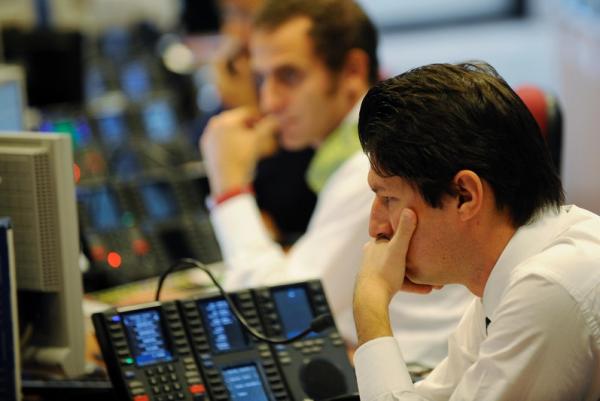Gold prices edge higher with focus on Ukraine-Russia, Jackson Hole
(Adds U.S. market open, byline; changes dateline; previous
LONDON)
* MSCI's world index gains as European shares fall
* Pound skids 1% as hard Brexit fears re-emerge
By Herbert Lash
NEW YORK, Dec 17 (Reuters) - The dollar rose on Tuesday amid
concerns about Britain's setting a hard deadline to reach a new
trade deal with the European Union, while global equity markets
gained, lifted by a resurgent U.S. housing market that bodes
well for the economy.
European stocks fell from record highs and sterling dropped
more than 1% as reports that British Prime Minister Boris
Johnson was set to put a no-deal exit from the EU back on the
table. Johnson will use his control of parliament after last week's
resounding election victory to outlaw any extension of the
Brexit transition period beyond 2020, a bold move that spooked
financial markets.
The pound GBP= traded at $1.3135, down 1.46% on the day,
while a profit warning from consumer goods giant Unilever
ULVR.L sent its shares down more than 7% and helped push the
broader European STOXX 600 index .STOXX down 0.72%.
U.S.-China trade optimism and reassuring Chinese economic
data had driven Asian and emerging market stocks to 18-month
highs overnight, but stocks tumbled in Europe when markets in
London, Frankfurt and Paris opened. .EU
The resurgence of uncertainty over Britain's departure from
the EU on Jan. 31 failed to carry through to Wall Street. Data
showing U.S. homebuilding increased more than expected in
November and permits for future home construction surged to a
12-1/2-year high lifted U.S. stocks, albeit modestly.
Evidence of a global economic revival is becoming
increasingly clear, said Jim Paulsen, chief investment
strategist at Leuthold Group in Minneapolis, citing U.S.,
Chinese and European data.
"The financial markets are just being bombarded by great
economic reports this week," he said.
Paulsen pointed to U.S. manufacturing output rebounding more
than expected in November, rising 1.1%, while industrial output
also rose 1.1% last month, according to the Federal Reserve.
The Dow Jones Industrial Average .DJI rose 51.63 points,
or 0.18%, to 28,287.52. The S&P 500 .SPX gained 2.24 points,
or 0.07%, to 3,193.69 and the Nasdaq Composite .IXIC dropped
1.35 points, or 0.02%, to 8,812.88.
Stock markets in Shanghai, Hong Kong and Seoul all gained
more than 1% and MSCI's all-country world index .MIWD00000PUS
set a record high, putting its gains for 2019 at almost 23%, its
best year in a decade and the fourth-best year ever.
The Australian dollar AUD=D3 also came under pressure
after the minutes of this month's Reserve Bank of Australia
meeting suggested the central bank might cut interest rates
again when it next meets in February. The RBA has already cut three times since June, taking rates
to a record low of 0.75%.
The dollar index .DXY rose 0.13%, with the euro EUR= up
0.08% to $1.1151. The Japanese yen JPY= weakened 0.02% versus
the greenback at 109.54 per dollar.
Oil rose further above $65 a barrel, supported by hopes that
the U.S.-China trade deal will bolster oil demand in 2020 and
the prospect of lower U.S. crude supplies.
Brent crude LCOc1 , the global benchmark, rose 59 cents to
$65.93 a barrel, while U.S. West Texas Intermediate crude CLc1
added 64 cents to $60.85 a barrel.
Palladium, which is widely used in catalytic converters for
car and truck exhausts, remained a focus, though, as it sped
toward $2,000 an ounce for the first time. Gold prices were steady.
Spot gold XAU= rose 0.02% to $1,476.24 an ounce.
Benchmark 10-year notes US10YT=RR last rose 3/32 in price
to yield 1.8801%.
Global markets in 2019 https://tmsnrt.rs/2EsQgc9
^^^^^^^^^^^^^^^^^^^^^^^^^^^^^^^^^^^^^^^^^^^^^^^^^^^^^^^^^^^>
